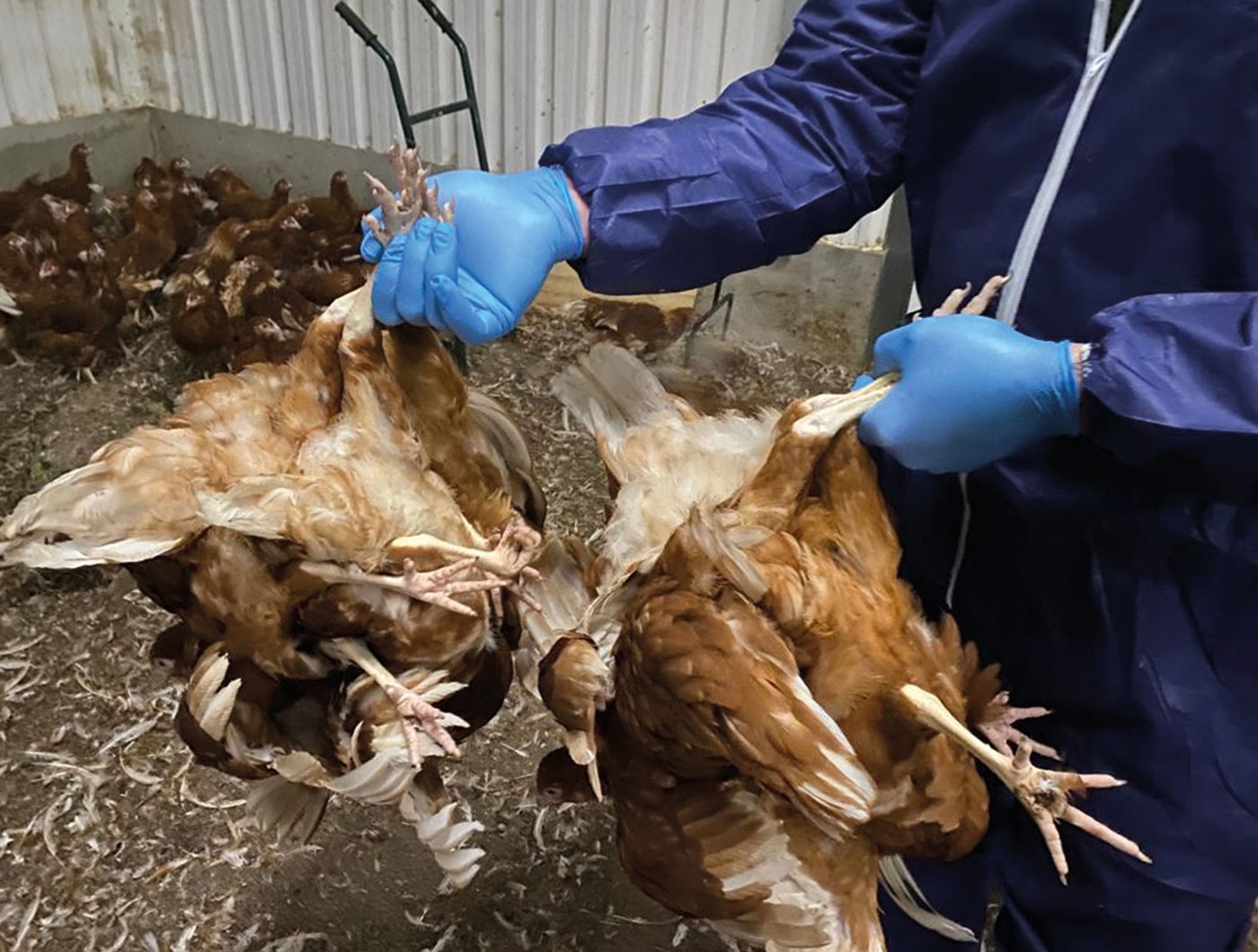Up in arms over leg catching
Published on : 2 Apr 2024

The RSPCA added their voice to the concerns, although acknowledging that their standards do allow double leg catching
Welfare groups have criticised a recently published Animal Welfare Committee (AWC) report which recommends catching chickens by their legs. Robert Gooch, BFREPA CEO, branded the welfare groups’ insistence that birds should be caught by the abdomen ‘totally unfeasible’ for the UK free range and organic sectors. The government linked AWC report, which gives a scientific opinion on the welfare implications of different methods of catching and loading poultry, says birds should be allowed to be caught by two legs and inverted during the loading process for the next five years while alternatives can be fully appraised. Existing European law, which continues to cover the UK post Brexit, forbids the lifting of chickens by their legs during on farms. There has been a discrepancy between this and codes of practice in the UK and many other EU countries for some time, which widely recognise catching by the legs as a valid method of bird handling. Serena Conforti, Advocacy Officer at the Animal Law Foundation, a UK based charity, objected to the report’s recommendations. “The AWC’s recommendation is the first open suggestion of removing an EU animal welfare protection since the UK left the EU in 2020,” she said. “This is despite the fact the government not only made promises not to dilute standards, it claimed that the UK would use its freedom to improve welfare standards. The current illegal and inhumane handling of chickens in the UK is a stark reminder of the need to prioritise animal welfare in our society.”The RSPCA added their voice to the concerns, although acknowledging that their standards do allow double leg catching. They iterated that they wish to see the practice phased out in favour of individually carrying birds.Dutch Changes A recent judicial review in the Netherlands means that the Dutch government will be enforcing catching chickens upright and by the abdomen from August 2024. One Dutch company which has already embraced the practice is Kipster. They estimate the cost as €0.0004 per egg, or around one Euro cent per dozen. UK sources estimate the cost to be close to 1.5p/dozen for transfer, multiplying each time birds are handled for vaccination or depletion. Ruud Zanders, Founding Partner of Kipster commented “The birds are much quieter and calmer and experience less stress. The additional costs are so negligible and totally worth it.”A source in the UK who had trialled catching birds by the abdomen suggested that the process took four times as long as the current practice of catching by the legs. They added that the challenges of clearing birds in multitier housing would be particularly difficult.“The problem is the availability of labour,” said the source. “There is the time constraint of how long birds will be on the waggon and what time they are needed at the abattoir. You would struggle to get enough people to do the job in the timescale available.” Commercial ViabilityThe official view from BFREPA agrees. “Current estimates are that it would take between four and six times as long to catch and move pullets and hens as compared to catching by the legs,” said Robert Gooch. “This means that the costs of moving pullets, vaccinating and treating pullets and hens, and catching at end of lay will increase by a factor of 4 to 6.”“As has been well reported in many industries, there is a shortage of labour and this is already been felt severely by farmers, pullet rearers, end of lay processors and catching gangs,” he added. “The extra staffing required by these operators to comply with this proposed change of legislation is not available in the job market without a significant change to UK immigration rules. Without any increase in staff availability, the free range sector would suffer from bottlenecks that would challenge its commercial viability.”Robert expanded on the implications for the wider market of such a move. “It is only twelve months ago that the UK had a shortage of eggs due to retailers and consumers not being willing to pay for cost increases of production, and if this happened again as a result of this change of policy, producers would either halt/suspend production again or stop production altogether, leading to another egg shortage.”